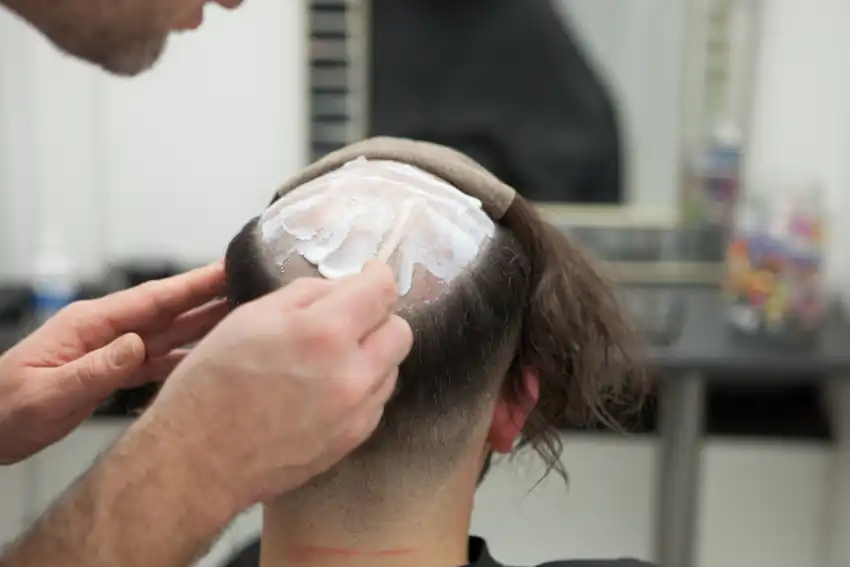
While hair systems offer a significant boost in confidence and aesthetics, many potential users worry about whether hair systems emit any unpleasant odors. Understanding the causes and prevention of hair system smells can help users maintain fresh and comfortable hairpieces.
Accumulation of Sweat: The scalp naturally produces sweat, especially in hot or humid conditions. When wearing a hair system, sweat can become trapped between the scalp and the base of the hairpiece, leading to a musty odor.
Sebum Build-up: Sebum, the natural oil produced by the scalp, can accumulate under the hair system. If not cleaned regularly, this build-up can cause an unpleasant smell.
Infrequent Washing: Like natural hair, hair systems require regular washing. If neglected, dirt, oils, and environmental pollutants can accumulate, resulting in bad odors.
Use of Wrong Products: Using products not suited for hair systems can leave residues that trap odors. It's essential to use shampoos and conditioners specifically formulated for hairpieces.
Improper Drying: After washing, if the hair system is not thoroughly dried, moisture can become trapped, leading to mildew or mold growth. This can cause a strong, unpleasant smell.
Lack of Ventilation: Hair systems need adequate ventilation to prevent bacterial and fungal growth. Poor ventilation can create a breeding ground for microbes that cause bad smells.
Consistent Washing Routine: By establishing a routine that includes regular washing and conditioning, users can prevent the build-up of sweat, oils, and other odor-causing agents.
Using Appropriate Products: Choosing the right products designed for hair systems ensures that residues do not accumulate and that the hairpiece remains fresh and odor-free.
Scalp Hygiene: Keeping the scalp clean by regularly washing it with gentle shampoos can minimize sweat and oil accumulation.
Avoiding Overuse of Products: Using hair products sparingly prevents residue build-up that can trap odors.
Thorough Drying: Ensuring that the hair system is completely dry after washing prevents moisture from becoming trapped, thereby reducing the risk of mildew or mold development.
Air Drying: Whenever possible, air drying the hair system can help maintain its freshness. If using a blow dryer, setting it to a cool or low heat setting is advisable. ###4. Ventilation and Storage: Adequate Ventilation: Allowing the scalp to breathe by removing the hair system when possible, can reduce sweat and oil accumulation.
Proper Storage: Storing the hair system in a well-ventilated area when not in use helps prevent musty odors. Using a mannequin head or a stand can help maintain its shape and ensure good air circulation.
Hair systems do not inherently smell, but factors such as sweat, natural oils, improper cleaning, and poor ventilation can contribute to unpleasant odors. By adhering to a regular cleaning routine, using the right products, ensuring proper drying, and maintaining good scalp hygiene, users can prevent their hair systems from developing any unwanted smells. Proper care not only keeps the hair system fresh but also extends its lifespan, ensuring that it continues to provide a natural and comfortable look for its wearer.